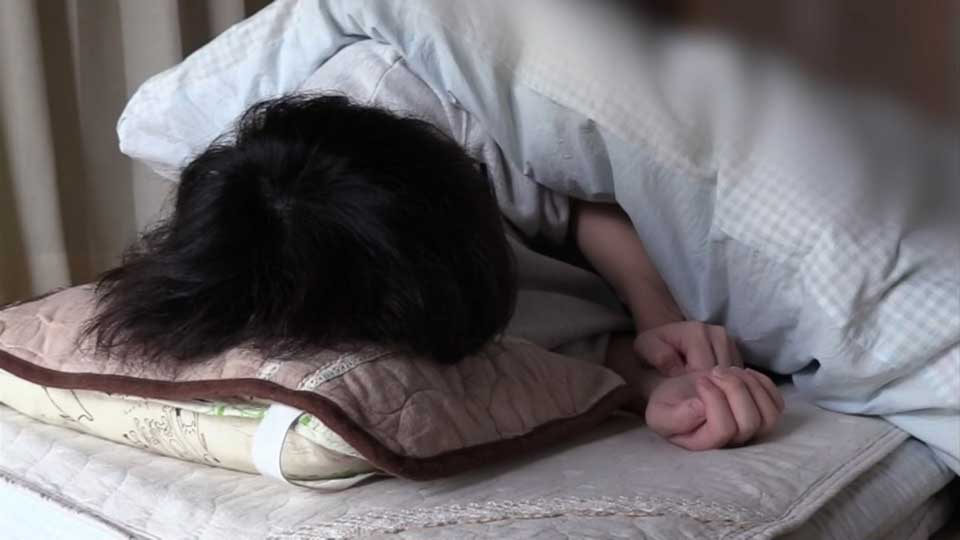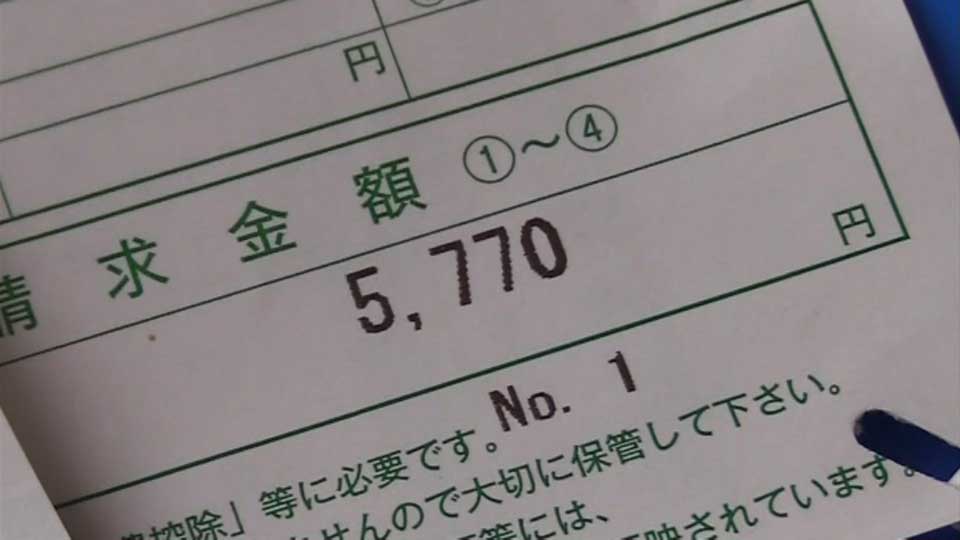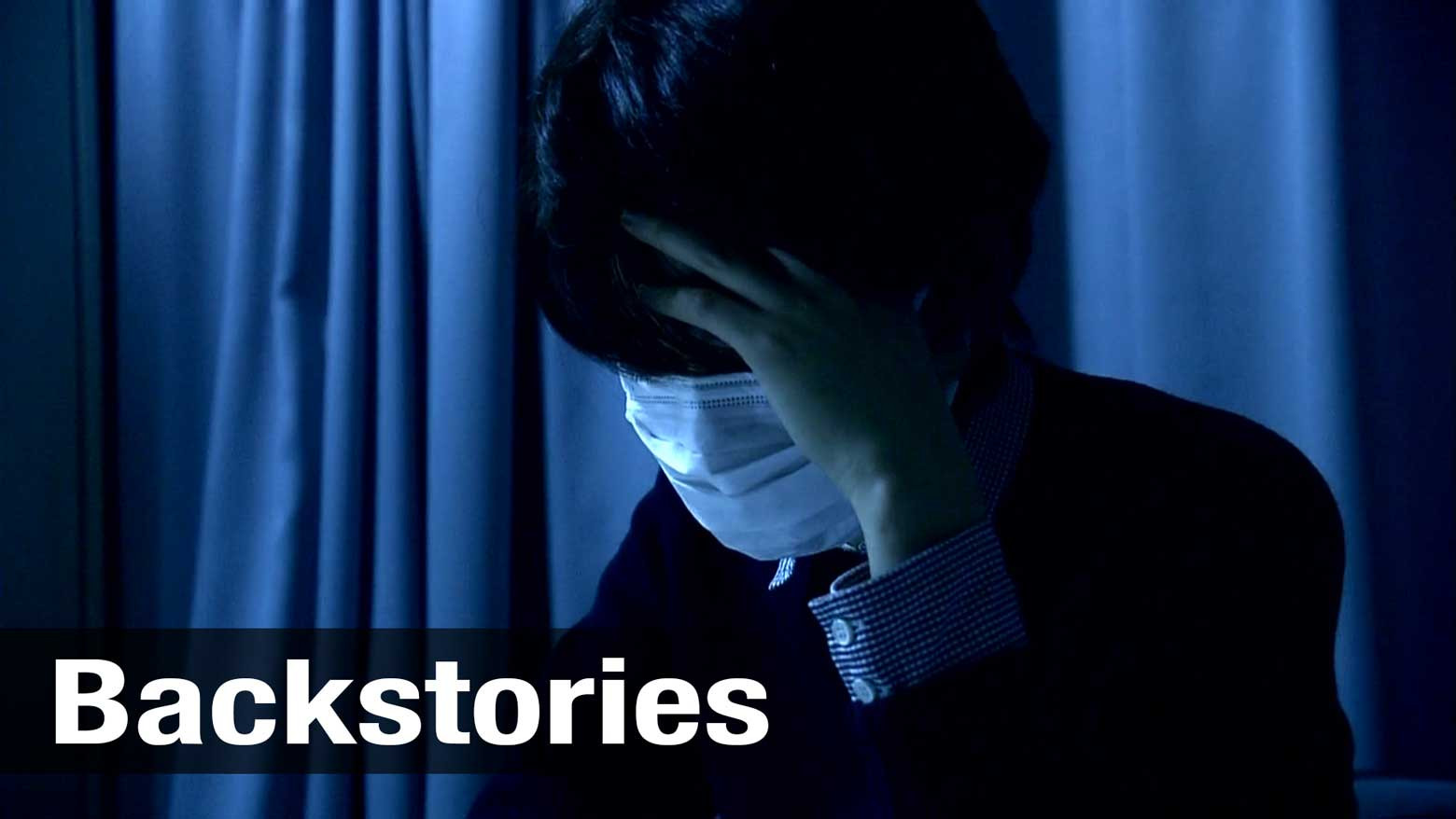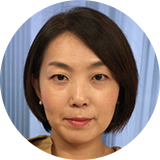"I feel extremely fatigued. It's like I'm being crushed."
A 21-year-old university student told NHK that his symptoms include splitting headaches that sometimes get so bad that he's unable to sleep.
He tested positive for the virus on April 7 and stayed home for three weeks. But his condition worsened and on April 29, with a temperature of 40 degrees Celsius, he was hospitalized. On May 9, after testing negative twice, he was discharged.
However, he says symptoms such as a high temperature, fatigue, shortness of breath, and loss of smell have continued for nearly two months. At one point in May, he fainted from dehydration and was hospitalized again for about a week.
"I was worried that I was actually still infected," he said. "I still had all the symptoms."
Although he had not fully recovered, the doctors sent him home. Tired and listless, all he could do was sleep. He said he didn't have the energy to even go outside.
"I thought I would recover and be able to quickly return to my normal life because I'm young," he said. "But that's not what happened at all."
Now he's taking a leave of absence from school. He says even taking notes is too exhausting for him, and that it would be impossible for him to concentrate.
"It's frightening," he says.

People like this student who are suffering from prolonged symptoms have taken to social media to talk about their experiences, using hashtags such as #LongCovid.
Many are sharing updates of their conditions, and say that the long-term effects of the coronavirus need to be part of the general conversation about the pandemic.
"Today I live with continuous chest pain, heart palpitations, shortness of breath, and more," tweeted a 23-year-old woman who was infected nearly four months ago.
Another woman, who says she has been bedridden since testing positive in February, wrote, "I had to quit my job. And now my older sister is also suffering from the same symptoms."
After contacting medical institutions and other facilities throughout Tokyo, NHK has learned that at least 98 people out of 1,370 who tested negative by the end of May after contracting the virus have had difficulty returning to normal life.
Costly medical expenses
Those suffering from prolonged symptoms are also facing the steep fees of extended treatment.
The 21-year-old student says he goes to the hospital once every two weeks and that each trip sets him back more than 5,000 yen, or about $46. He also has to pay for a taxi to travel to and from his house because his condition makes it difficult to walk or take public transportation.
Japan's public health insurance system covers the cost of all treatment for coronavirus patients, until they test negative and are discharged from the hospital. After that, they are on their own.
The student says he has spent 120,000 yen, or more than $1,100, on treatment. And he sees no end in sight.
"I have to depend on my parents right now because I can't even go to my part-time job," he says.
He says support for coronavirus patients needs to continue even after they test negative because the results don't reflect the extent of their suffering.
"I was told I was negative and free of the virus," he says. "But those are just words. My symptoms are still here."

The Japanese Respiratory Society, whose members are doctors at medical institutions across the country, has decided to start studying lingering symptoms.
"We don't know how many such cases there are in the country," says Chairman Yokoyama Akihito. "But we need to find out how frequently these aftereffects emerge. We need information on this to be prepared for the second wave of infection."

